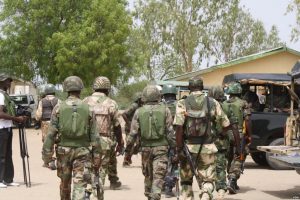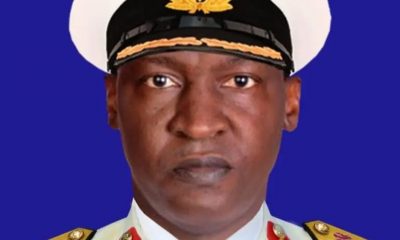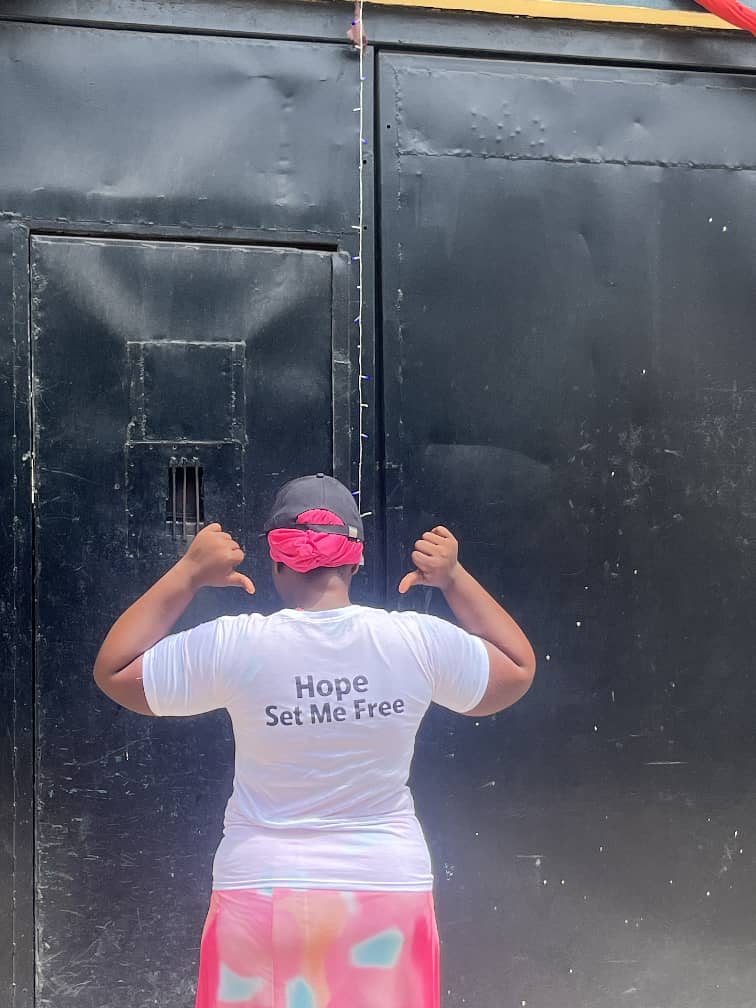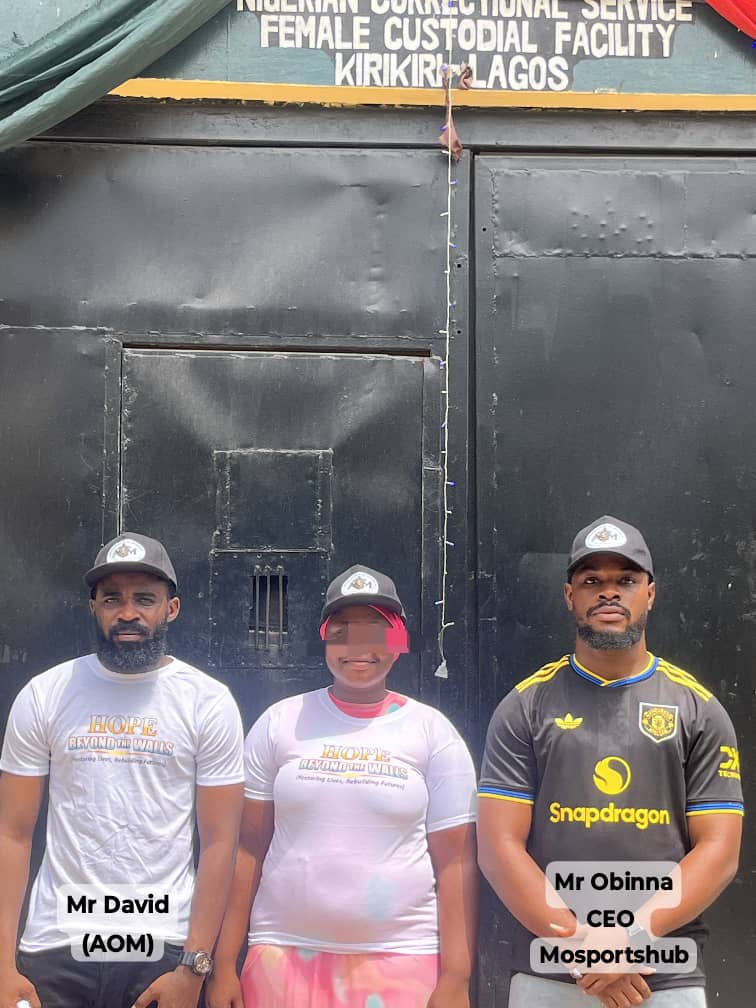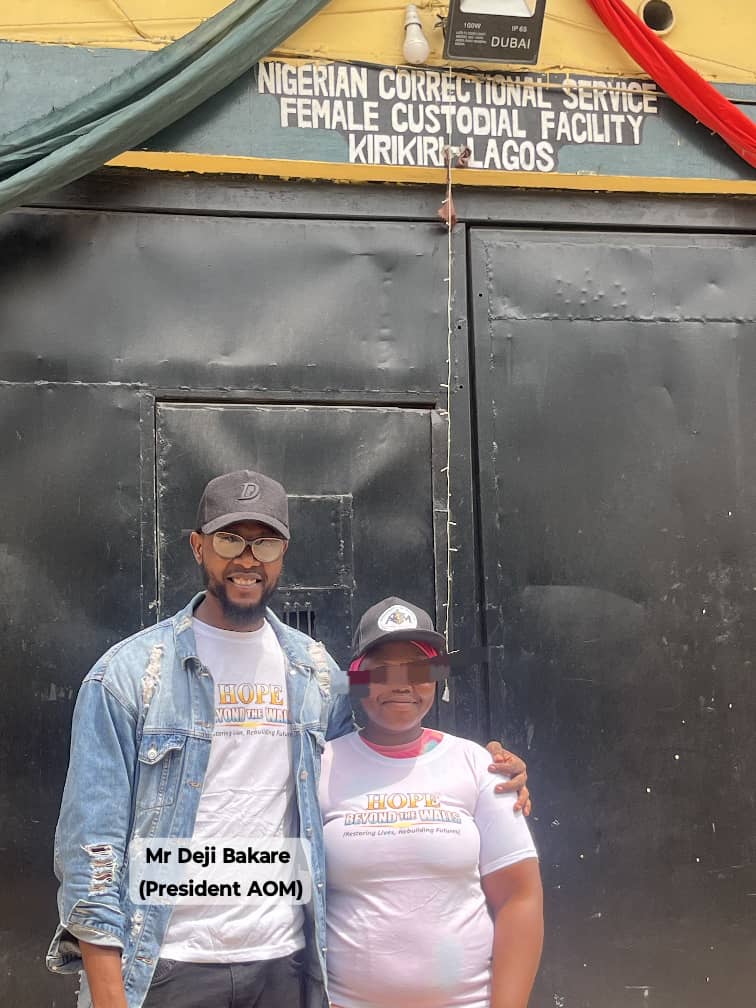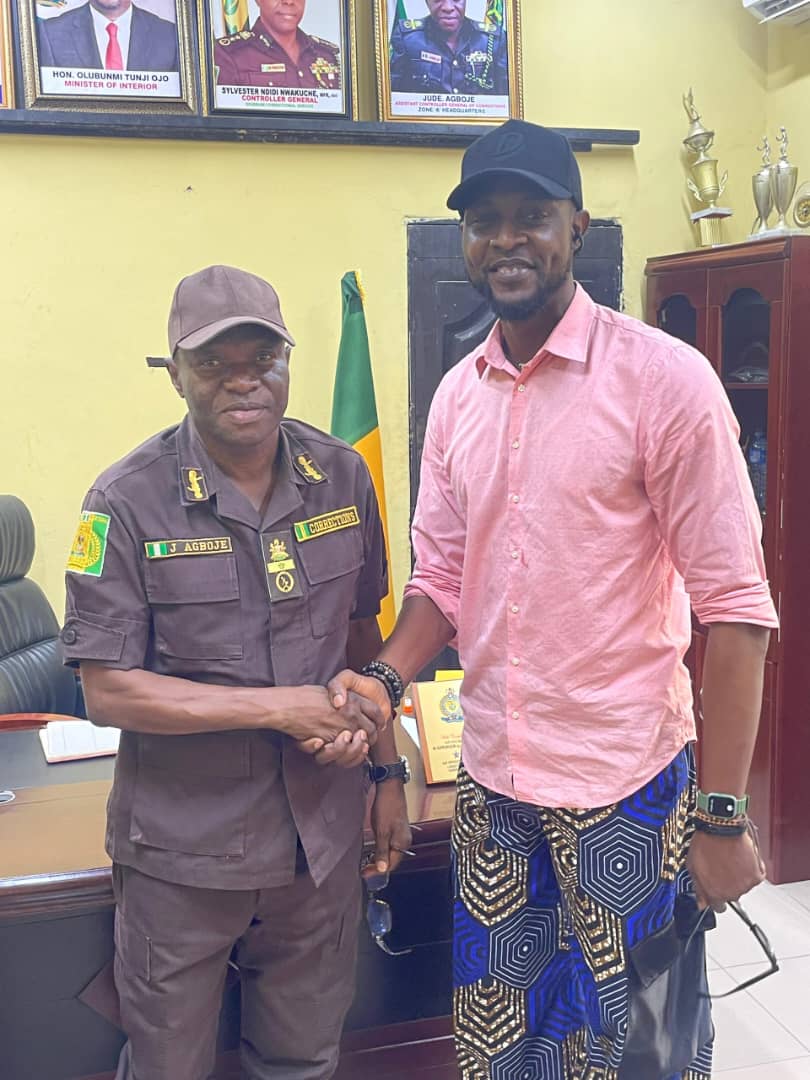society
CSOs raises alarm over plot by foreign media to demonise Nigerian Army
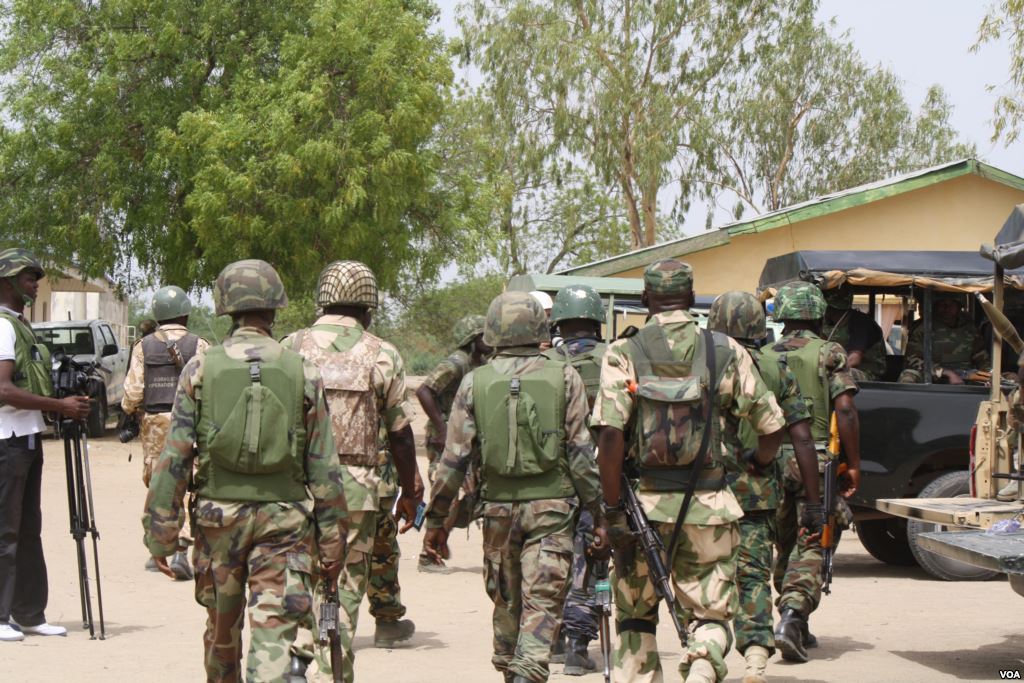
CSOs raises alarm over plot by foreign media to demonise Nigerian Army
Coalition of Civil Society organizations led by Civil rights advocacy group, Human Rights Writers Association of Nigeria (HURIWA) has raised alarm over an alleged plot by some foreign media to rubbish the image of the Nigerian Army in its fight against terrorists in the North-East of the country.
HURIWA National Coordinator, Emmanuel Onwubiko, at a press briefing on Friday in Abuja, said coalition of civil society organisations drawn from various parts of the country is fully aware of the alleged plans by some western media to demonise the Nigerian Army by churning out fake reports that may dampened efforts to root out Boko Haram and other terrorists from Nigeria.
His words : “We want to first and foremost let you know that this briefing session is completely our independent initiative in our capacity as a coalition of Nigerian civil society organizations who have no political affiliations but are passionate about achieving just and equitable development in our dear country.
As you all may be aware, our coalition is a team of professionals who have come together to advance the single agenda of building a formidable and economically strong united Nigeria.
THE ISSUES
As you all are aware, Boko Haram and ISIS-West Africa attacks against government and security forces and civilians in Northeast, Nigeria have resulted in deaths, injuries, abductions, and the capture and destruction of property.
Worrisome is that the Boko Haram attacks did not discriminate between civilians and government officials, whereas ISIS-WA generally, but not always, focused attacks on government and security forces.
The implementation of the Nigerian military’s “super camp” strategy, which began in 2019, was designed to stem losses when terrorists overran forward-operating bases. As a defensive military strategy, the decision to consolidate the posture into super camps is working.
Sadly, some foreign media elements, fanning the embers of hatred against the Nigerian Army are peddling false or exaggerated accusations supposedly to weaken the Nigerian Army and help arms supplies to sell more weapons to terrorists.
Gentlemen of the Press, we have privileged information that Reuters; a foreign media platform is planning a sinister story on the Nigerian war on terror.
They want to raise allegations of secret abortion clinics in North East whereby over 200 kids born through the rape of captured women by Boko haram commanders were aborted without the permission of the Women who were raped.
Also, they are accusing the military of decimating children of Boko haram fighters and are saying they will file a petition to the ICC.They accuse the Nigerian Army of running these abortion clinics and mass burials of kids killed deliberately by the Army but gave no concrete evidence of where those mass graves are located
We, the Coalition of Civil Society organizations are very concerned about Reuters as a foreign media plotting to circulate the story which will undermine Nigeria’s national security.
Gentlemen recall that during the missile incident that killed two people in Polish territory on Tuesday, November 15th, 2022, Reuter quickly sent out an unverified story accusing Russia of being responsible. However, it turned out that they were missiles fired by Ukraine to stop Russian bombs.
The report nearly made NATO begin a World War against Russia, as the incident in Poland; a NATO country prompted ambassadors from the US-led military alliance to hold an emergency meeting in Brussels.
Reuters reportedly later fired the reporter when NATO scientists confirmed it was a Ukrainian bomb, not a Russian. This is worrisome as the trend to publish stories without thinking of their impact is still what the media outfit is planning to do.
Many foreign media have shifted to a point where they want to publish stories that sell, looking at how much they will get out of the story without minding more about who is affected or who is not affected. That is why you find many of them sensationalize issues instead of reporting for the good.
As uncomfortable as this connection may seem, we cannot separate the two. We are looking at the role of the media, the power of its message, and the impact of an information vacuum.
There is a considerable and growing body of literature on the Rwanda genocide in general and the role of the media in particular.
The use of propaganda leaflets and radio messages was a key tool in procuring the compliance of Hutus to participate in the massacres, including those initially against the killings.
Those Hutus who fled Rwanda after the genocide were often pushed into doing so by fear-filled propaganda, which was arguably aimed at increasing the number of refugees, who would then be seen as victims by the international community.
Strikingly, whilst Burundi’s Hutu President was also killed, the Burundi media worked with the UN and domestic officials to broadcast a message of calm, averting atrocities on this occasion. This emphasizes propaganda’s influence in spurring the Rwandan genocide.
Propaganda alluded to atrocities committed by the Rwandan Patriotic Front (RPF) which in turn contributed to notions that atrocities were the result of renewed warfare, ethnic tensions, or simply ‘chaos’.
Indeed, French media portrayed the events as a “two-way genocide” and French troops were led to believe Hutus were victims of the conflict, just as Reuters is trying to portray the terrorists as victims rather than villains.
The purpose of looking back at the media’s role in the Rwanda events is not just to remember. Foreign media still have some learning to do on this subject.
Examining the way journalists and news organizations conducted themselves in 1994 is not just a historical exercise.
Sadly, the international community does not yet seem to have fully discerned or absorbed the lessons from Rwanda.
OUR POSITION
The Nigerian Army deserves the gratitude and commendation of the nation and the international society, not this sinister plot by Reuters to distract and weaken efforts in the fight against terrorism.
Again, the sponsors of this campaign of falsehood and calumny must not be allowed to achieve their evil plans. If we sit back and fold our arms whilst this evil is allowed to fester, then we will be shooting ourselves in the foot destroying the achievements the Nigerian Army has made so far against terrorism.
Gentlemen of the media, we are by this statement calling on the Nigerian Government to warn against foreign media stoking embers of hatred against the Nigerian Army. Reuters is on the vanguard of destroying the credibility of the Nigerian Army with unsubstantiated propaganda, which is enough to undermine our national security.
The Media were used in Rwanda to spread hatred, dehumanize people, and even guide the genocidaires toward their victims. The tension between the two groups existed for decades, but what was a protracted social conflict morphed quickly into a genocide with significant assistance from the media.
Three journalists have even been found guilty of genocide, incitement to genocide, conspiracy, and crimes against humanity by the International Criminal Tribunal for Rwanda.
We must find a way to respond to such abuses of power without violating the principles of freedom, which are an indispensable cornerstone of democracy.
The lessons for international society are twofold. Whilst a free press is a sine qua none to hold those in power accountable and represents the very foundation free societies rest upon, it needs to be emphasized that freedom comes with responsibility.
The abuse of the freedom of speech to create division through hate speech, and unsubstantiated accusations that in turn lead to large-scale violence is an indicator of an arising conflict.
The sponsors of this campaign of calumny against the Nigerian Army need to be identified and acted upon. We, therefore, call on international society to increased pressure in halting such propaganda.
Beyond this, upon assumption of office, Buratai and his Principal Officers monitored issues on allegation of human rights abuses against troops deployed for operations across the country in line with the President and Commander-in-Chief of the armed forces’ mandate in the fight against terrorism. Again, through the establishment of Human Rights Desk Offices in the Army headquarters and across the Nigerian army divisions, the Army could address petitions and other different claims against it. This move, borne out of the increasing interest of the local and international human rights bodies on what Nigerian Army is doing in the North-East and and other parts of the country, to many human right analysts, marked a departure from the old order when the Military was on the defensive whenever allegations of human rights violations were leveled against it.
Incidentally, while commissioning the human rights office at the Headquarters of 7 Division Nigerian Army in Maiduguri, Buratai noted that the establishment of the desk office was borne out of the increasing interest of local and international rights bodies on what the army is doing in the North-East and other parts of Nigeria. His words: “The Nigerian Army is trying to open up the system and close the gap with the civil populace, human rights bodies and Civil Society Organizations; the nature of inquiries, commentaries, and claims from these institutions requires a professional and specialized response by the Nigerian Army. What we are witnessing today has been facilitated by the Nigerian Bar Association and National
National Human Rights Commission”, he added.
The Military–Media–Public Awareness Programme noted at an event, with CLEEN foundation at Jabi Motor Park, Abuja, that “the army is passionate about the rights of civilians and had measures in place to ensure that rights of civilians are protected. These measures included the opening of Free Toll Line 193, designated Toll-Free Call Centre and Public Complaints Rapid Response Unit. The offices and the toll line 193 are opened to members of the public whose rights have been infringed upon; they can always walk in to the office and lodge their complaints. So, the Army is doing its best to ensure that they respect the rights of the civilians. We assure them that once they come to us they protected their rights and we do our best to serve them better”.
Perhaps, those still unconvinced of the exceptional transformational measures contrived in repositioning to the Nigerian Army for effective counter-insurgency, and the productivity of maintaining military–Civil relationship practices may be poor adherents of history or have a faulty retentive memory. Not too long ago, as part of the activities marking the 2020 Nigerian Army Day Celebration together with its Cooperate Social Responsibility, Troops of the 7 Division Maiduguri conducted sanitation exercise along Baga road market, Maiduguri town in Borno State, while the newly built Camp Delta Force Quick Reaction Base was commissioned to enhance quick response of troops to terror activities in the communities.
Unequivocally, the allegations of human rights abuses against the Nigerian Army, particularly in the conduct of counterinsurgency operation where issues of great concern to TY Buratai, who ensured that they took various actions to guarantee that rights violations by Nigerian Army personnel are fully curtailed. Instructively, the three key concepts prevalent in the ex-COAS; Lt Gen TY Buratai’s vision for the Nigerian Army where Professionalism, Responsiveness and Working within the ambit of the Constitution of Nigeria, signifying an excellent Civil–Military Relations anchored on adherence to the Rule of Law and Respect for Human Rights are necessary
Therefore, we urge the current CHIEF OF ARMY STAFF to note that it is important that some of these significant approaches introduced as aforementioned towards improving the consistent dialogues between the Army and the civil society and the then Chief of Army Staff Lieutenant General Tukur Yusuf Buratai are adopted by the current hierarchies of the armed forces of Nigeria if the military ever hope to win the hearts and minds of the people of Nigeria.”
society
Tinubu Mourns Rear Admiral Musa Katagum: A National Loss for Nigeria’s Military Leadership
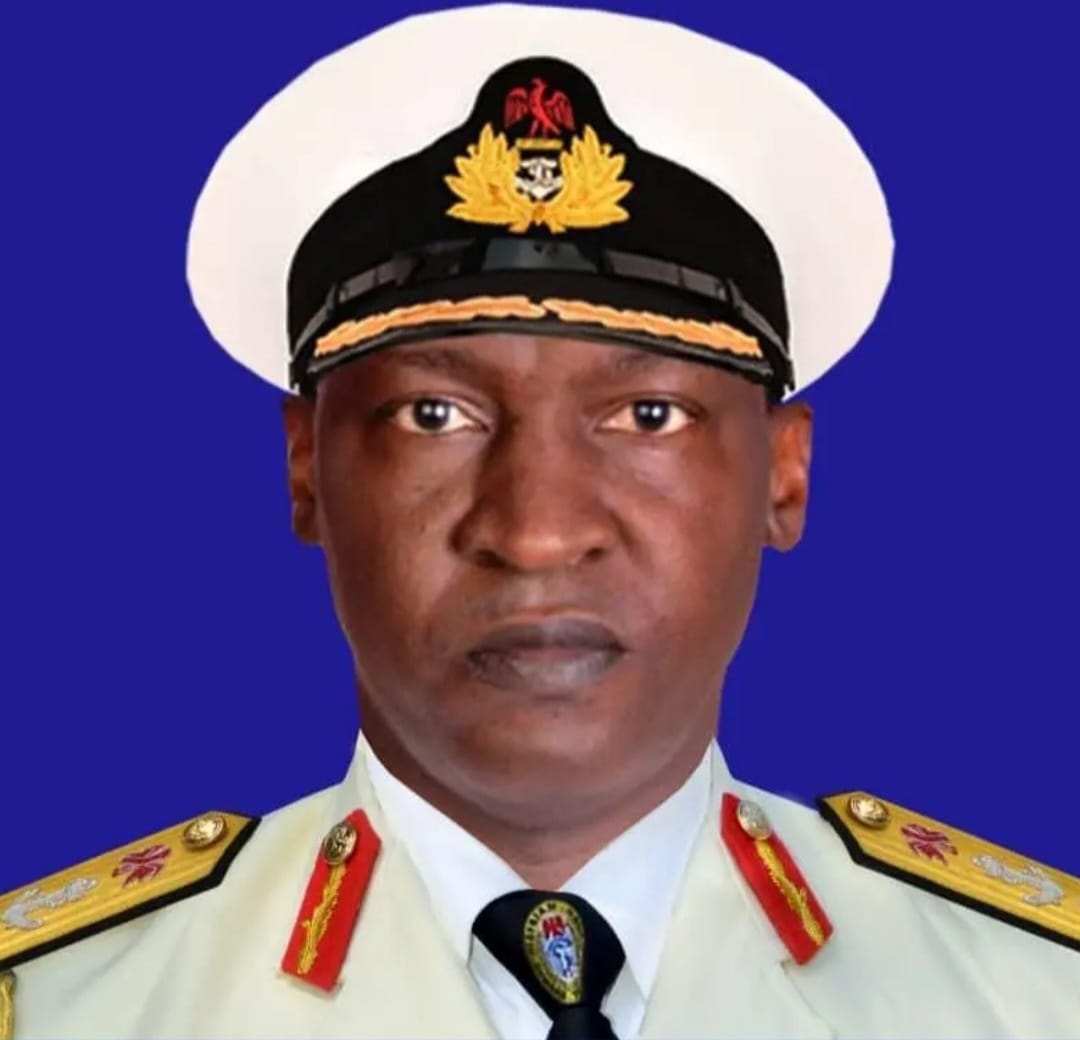
Tinubu Mourns Rear Admiral Musa Katagum: A National Loss for Nigeria’s Military Leadership
By George Omagbemi Sylvester | Published by SaharaWeeklyNG
“President Tinubu Pays Tribute as Nigeria’s Naval Command Mourns the Sudden Loss of a Strategic Maritime Leader at a Critical Security Juncture.”
Abuja, Nigeria – President Bola Ahmed Tinubu has officially mourned the death of Rear Admiral Musa Bello Katagum, the Chief of Naval Operations of the Nigerian Navy, who died on February 19, 2026, after a protracted illness while receiving treatment abroad. His passing has sent ripples through Nigeria’s defence establishment and national security architecture, marking the loss of one of the most experienced and respected maritime commanders in recent memory.
In a statement released on February 20, 2026 by his Special Adviser on Information and Strategy, Bayo Onanuga, President Tinubu described Rear Admiral Katagum’s death as a “significant blow to the military and the nation,” noting the late officer’s vast experience and “invaluable contributions” to both the Nigerian Navy and the broader “Armed Forces of Nigeria”. The President extended heartfelt condolences to the bereaved family, naval personnel and the nation at large, while praying for solace and strength for colleagues and loved ones.
Rear Admiral Katagum’s career was marked by distinguished service in several strategic capacities. Before his appointment as Chief of Naval Operations in November 2025, he served as Director of the Presidential Communication, Command and Control Centre (PC4) and Chief of Intelligence of the Nigerian Navy-roles that placed him at the nexus of naval operational planning and intelligence gathering. His leadership was widely credited with enhancing the Navy’s capacity to respond to growing maritime threats in the Gulf of Guinea, including piracy, illegal bunkering, and transnational crime.
Security policy experts emphasise that Katagum’s loss comes at a critical juncture for Nigeria. Dr. Adebola Akinpelu, a defence analyst at the Institute for Security Studies, observes that “Nigeria’s maritime domain remains a frontline in the broader security challenges facing the nation; the loss of an adept operational leader like Rear Admiral Katagum is not just a personnel change but a strategic setback.” His insight reflects broader concerns about continuity in military leadership amid intensifying threats.
The Nigerian Navy’s own statement, confirmed by the Directorate of Naval Information, affirmed that Katagum’s “exemplary leadership, strategic insight, and unwavering loyalty” were central to boosting operational readiness and national defence. According to Captain Abiodun Folorunsho, the Director of Naval Information, “His legacy remains a source of inspiration across the services.”
As Nigeria grapples with complex security landscapes at its land and maritime frontiers, the death of Rear Admiral Katagum underscores a broader national imperative: strengthening institutional capacities while honouring the service and sacrifice of those who defend the nation’s sovereignty. In the words of military scholar Professor James Okoye, “Leadership in security institutions is not easily replaceable; it is built through experience, trust and strategic clarity; qualities that Katagum embodied.”
Rear Admiral Musa Katagum has since been laid to rest in accordance with Islamic rites, leaving behind a legacy that will inform Nigerian naval operations for years to come.
society
Viral “Chat With God” Claim Targeting Kenyan Prophet David Owuor Proven False

Viral “Chat With God” Claim Targeting Kenyan Prophet David Owuor Proven False
By George Omagbemi Sylvester, SaharaWeeklyNG
“Viral screenshot sparks national controversy as the Ministry of Repentance and Holiness dismisses fabricated “divine” WhatsApp exchange, raising urgent questions about faith, digital misinformation, and religious accountability in Kenya.”
A sensational social media claim that Kenyan evangelist Prophet Dr. David Owuor displayed a WhatsApp conversation between himself and God has been definitively debunked as misinformation, sparking national debate over digital misinformation, religious authority and faith-based claims in Kenya.
On February 18–19, 2026, an image purporting to show a WhatsApp exchange between a deity and Prophet Owuor circulated widely on Twitter, Facebook, WhatsApp groups and TikTok. The screenshot, allegedly shared during one of his sermons, was interpreted by many as illustrating unprecedented direct communication with the divine delivered through a mainstream messaging platform; a claim that, if true, would have broken new ground in how religious revelation is understood in contemporary society.
However, this narrative quickly unraveled. Owuor’s Ministry of Repentance and Holiness issued an unequivocal public statement calling the image “fabricated, baseless and malicious,” emphasizing that he has never communicated with God through WhatsApp and has not displayed any such digital conversation to congregants. The ministry urged the public and believers to disregard and stop sharing the image.
Independent analysis of the screenshot further undermined its credibility: timestamps in the image were internally inconsistent and the so-called exchange contained chronological impossibilities; clear indicators of digital fabrication rather than an authentic conversation.
This hoax coincides with rising scrutiny of Owuor’s ministry. Earlier in February 2026, national broadcaster TV47 aired an investigative report titled “Divine or Deceptive”, which examined alleged “miracle healing” claims associated with Owuor’s crusades, including assertions of curing HIV and other chronic illnesses. Portions of that investigation suggested some medical documentation linked to followers’ health outcomes were fraudulent or misleading, intensifying debate over the intersection of faith and public health.
Credible faith leaders have weighed in on the broader context. Elias Otieno, chairperson of the National Council of Churches of Kenya (NCCK), recently urged that “no religious leader should replace God or undermine medicine,” affirming a widely accepted Christian understanding that divine healing does not supplant established medical practice. He warned against unverified miracle claims that may endanger lives if believers forego medical treatment.
Renowned communications scholar Professor Pippa Norris has noted that in digital societies, “religious authority is increasingly contested in the public sphere,” and misinformation (intentional or accidental) can quickly erode trust in both religious and secular institutions. Such dynamics underscore the importance of rigorous fact-checking and responsible communication, especially when claims intersect profoundly with personal belief and public well-being.
In sum, the viral WhatsApp chat narrative was not a revelation from the divine but a striking example of how misinformation can exploit reverence for religious figures. Owuor’s swift repudiation of the false claim and broader commentary from established church bodies, underline the ongoing challenge of balancing deeply personal faith experiences with the evidence-based scrutiny necessary in a digitally connected world.
society
HOPE BEYOND THE WALLS 2026: ASSOCIATION OF MODELS SUCCESSFULLY SECURES RELEASE OF AN INMATE, CALLS FOR CONTINUED SUPPORT

HOPE BEYOND THE WALLS 2026: ASSOCIATION OF MODELS SUCCESSFULLY SECURES RELEASE OF AN INMATE, CALLS FOR CONTINUED SUPPORT
The Association of Models (AOMNGO) proudly announces the successful completion of the first edition of Hope Beyond the Walls 2026, a humanitarian initiative dedicated to restoring hope and freedom to deserving inmates.
Despite enormous challenges, financial pressure, emotional strain, and operational stress, the organization remained committed to its mission. Through perseverance, faith, and collective support, one inmate has successfully regained freedom a powerful reminder that hope is stronger than circumstance.
This milestone did not come easily.
Behind the scenes were weeks of coordination, advocacy, fundraising, documentation, and intense engagement. There were moments of uncertainty, but the determination to give someone a second chance kept the vision alive.
Today, the Association of Models gives heartfelt appreciation to all partners and sponsors, both locally and internationally, who stood with us mentally, financially, morally, and physically.
Special Recognition and Appreciation To:
Correctional Service Zonal Headquarters Zone A Ikoyi
Esan Dele
Ololade Bakare
Ify
Kweme
Taiwo & Kehinde Solagbade
Segun
Mr David Olayiwola
Mr David Alabi
PPF Zion International
OlasGlam International
Razor
Mr Obinna
Mr Dele Bakare (VOB International)
Tawio Bakare
Kehinde Bakare
Hannah Bakare
Mrs Doyin Adeyemi
Shade Daniel
Mr Seyi United States
Toxan Global Enterprises Prison
Adeleke Otejo
Favour
Yetty Mama
Loko Tobi Jeannette
MOSES OLUWATOSIN OKIKIADE
Moses Okikiade
(Provenience Enterprise)
We also acknowledge the numerous businesses and private supporters whose names may not be individually mentioned but whose contributions were instrumental in achieving this success.
Your generosity made freedom possible.
A CALL TO ACTION
Hope Beyond the Walls is not a one-time event. It is a movement.
There are still many deserving inmates waiting for a second chance individuals who simply need financial assistance, legal support, and advocacy to reunite with their families and rebuild their lives.
The Association of Models is therefore calling on:
Corporate organizations
Local and international sponsors
Philanthropists
Faith-based organizations
Community leaders
Individuals with a heart for impact
to partner with us.
Our vision is clear:
To secure the release of inmates regularly monthly, quarterly, or during special intervention periods through structured support and transparent collaboration.
HOW TO SUPPORT
Interested partners and supporters can reach out via
Social Media: Official Handles Hope In Motion
Donations and sponsorship inquiries are welcome.
Together, we can turn difficult stories into testimonies of restoration.
ABOUT AOMNGO
The Association of Models (AOMNGO) is a humanitarian driven organization committed to advocacy, empowerment, and social impact. Through projects like Hope Beyond the Walls, the organization works tirelessly to restore dignity and create opportunities for individuals seeking a second chance.
“When we come together, walls fall and hope rises.”
For media interviews, partnerships, and sponsorship discussions, please contact the Association of Models directly.
-

 celebrity radar - gossips6 months ago
celebrity radar - gossips6 months agoWhy Babangida’s Hilltop Home Became Nigeria’s Political “Mecca”
-

 society6 months ago
society6 months agoPower is a Loan, Not a Possession: The Sacred Duty of Planting People
-

 society5 months ago
society5 months agoReligion: Africa’s Oldest Weapon of Enslavement and the Forgotten Truth
-

 news6 months ago
news6 months agoTHE APPOINTMENT OF WASIU AYINDE BY THE FEDERAL GOVERNMENT AS AN AMBASSADOR SOUNDS EMBARRASSING

